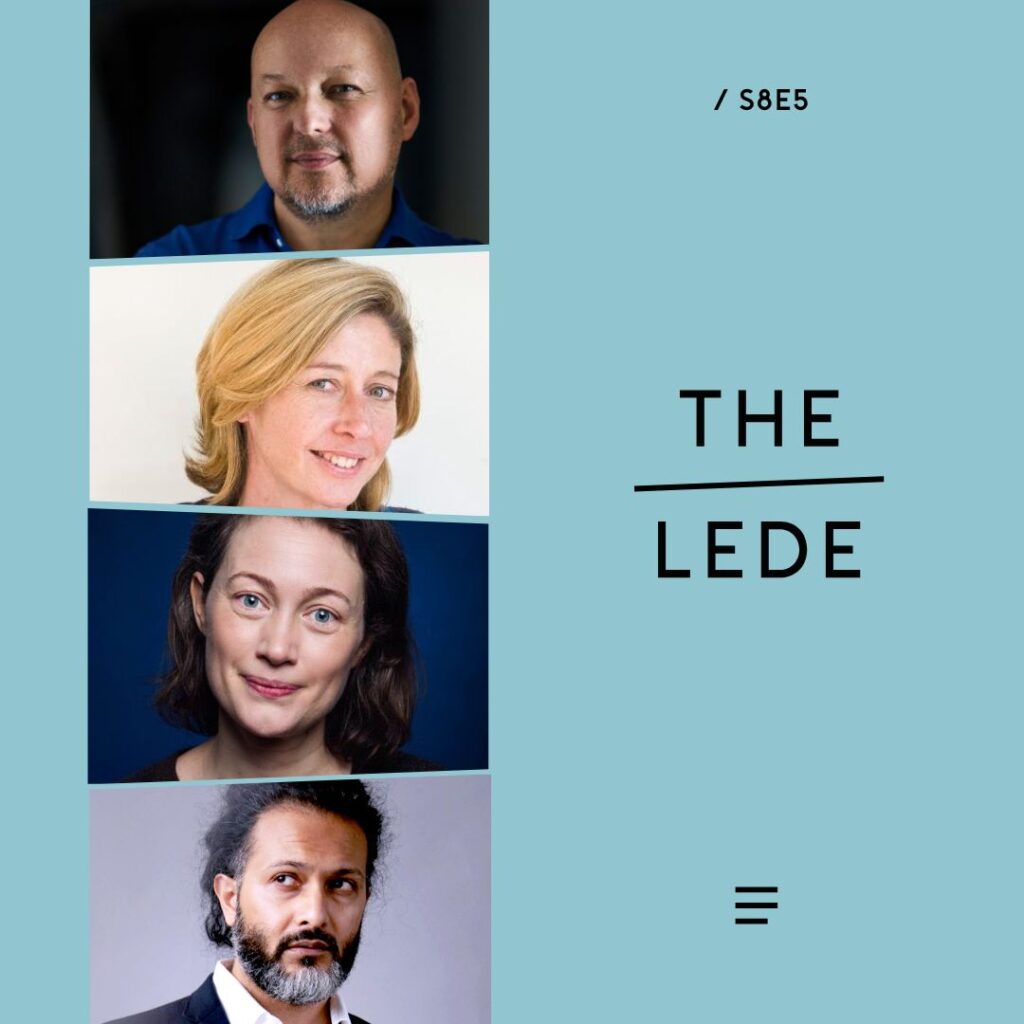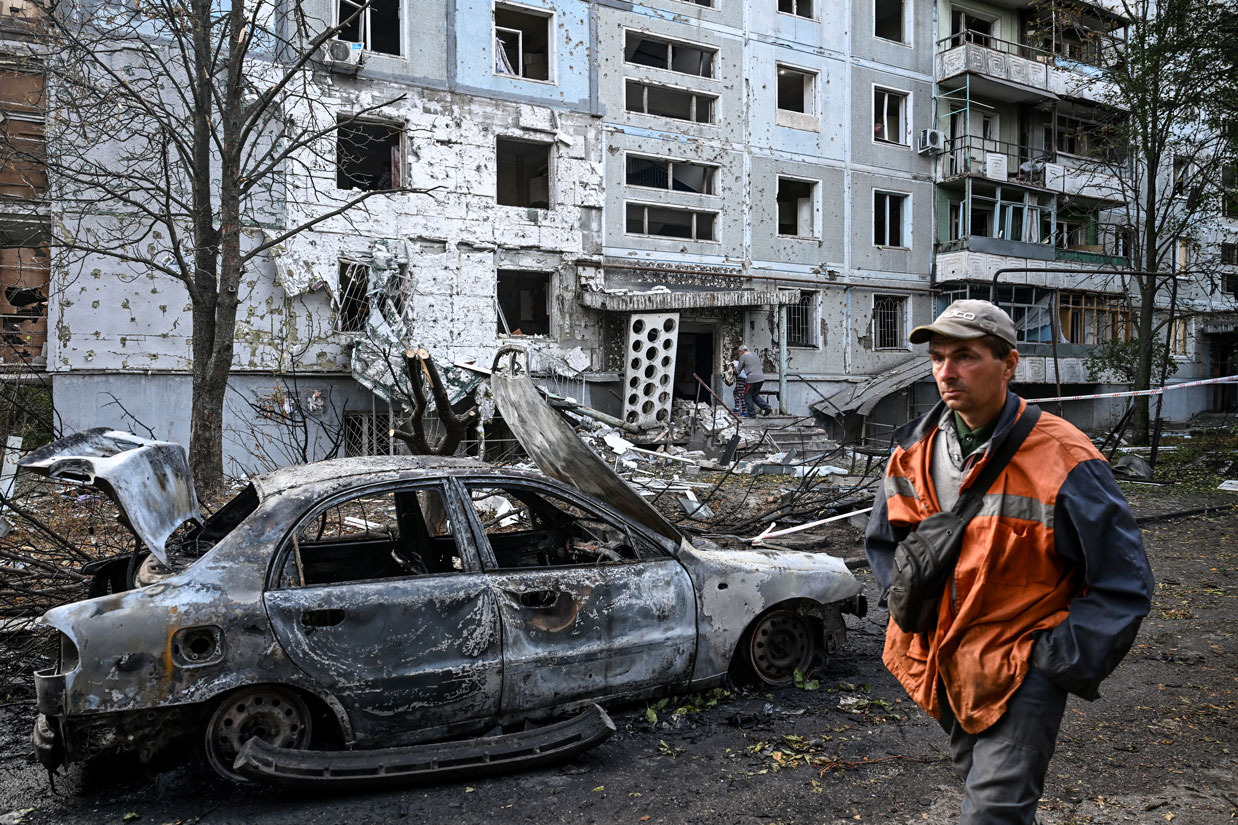Hosted by Faisal Al Yafai and Lydia Wilson
Featuring Yaroslav Trofimov and Christina Lamb
Produced by Finbar Anderson
Assistant Producer Henry Wilkins
Listen to and follow The Lede
Apple Podcasts | Spotify | Podbean
Storytelling has a different imperative when closer to home, The Wall Street Journal’s Yaroslav Trofimov tells New Lines’ Faisal Al Yafai and Lydia Wilson on this episode of the podcast, recorded at a live event at the Frontline Club in London. Of covering his birthplace, Ukraine, he says: “I have this familiarity, I have extra responsibility to push harder and to take more risks. I felt a sense of personal insult at my hometown being bombarded and having to wear a flak jacket on the street where I grew up. On the personal, emotional level, the risks were worth taking there in a way that they weren’t for me in other conflicts.”
Joining Trofimov on stage, The Sunday Times’ Chief Foreign Correspondent Christina Lamb notes that, although Afghanistan — where she spent many years reporting — is “not my country in the way that Ukraine is for Yaroslav, I think about all these people that I’ve known for years. And so I really want people outside to understand what’s happening and to care.”
“It feels as though the world has just moved on. I feel ashamed as a woman, as a journalist, as a mother, at this situation.”

Nevertheless, Lamb is frustrated that she is unable to keep audiences focused on Afghanistan. “Who’s talking about it? It feels as though the world has just moved on. I feel ashamed as a woman, as a journalist, as a mother at this situation.”
Lamb notes that this issue affects the Ukraine war as well. “At the start of the full-scale invasion, we could write about anything in Ukraine and it would get in the paper. People wanted to know everything, right? We could write about the zoos, about the parks, about people looking at cherry blossom and people would read it. But that’s changed now.”
Trofimov says that the need to keep his audience engaged drove him eventually to explore telling the story of his birth country through the medium of the novel. His book, “No Country for Love,” is a novel set in mid-20th-century Ukraine. Its purpose, he says, is to help his audience understand why Ukrainians continue to resist Russian occupation. “The historical memory of domination by Moscow makes people realize that no matter how hard it is, the alternative of surrender is worse.”


